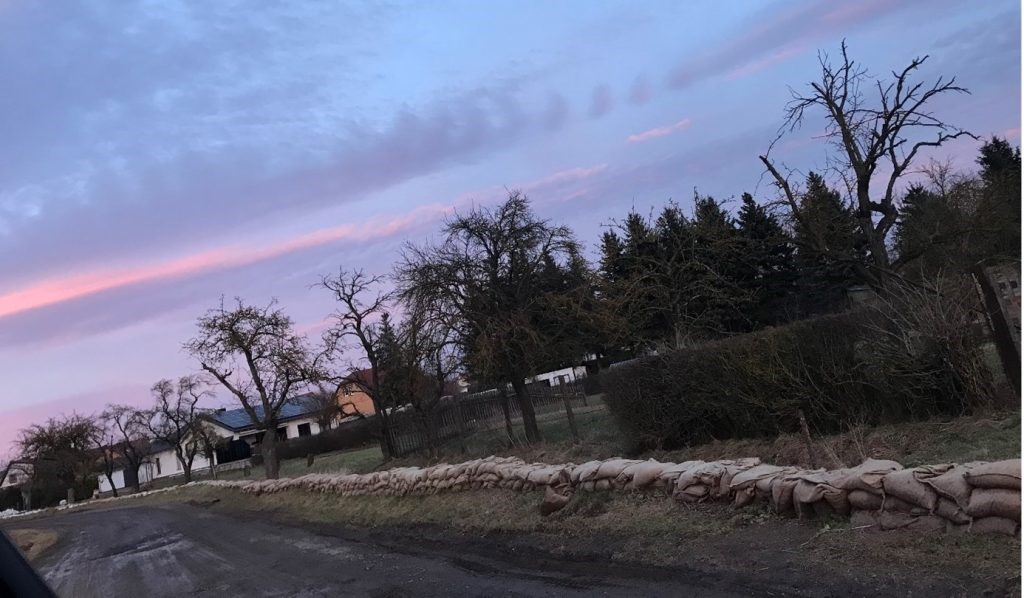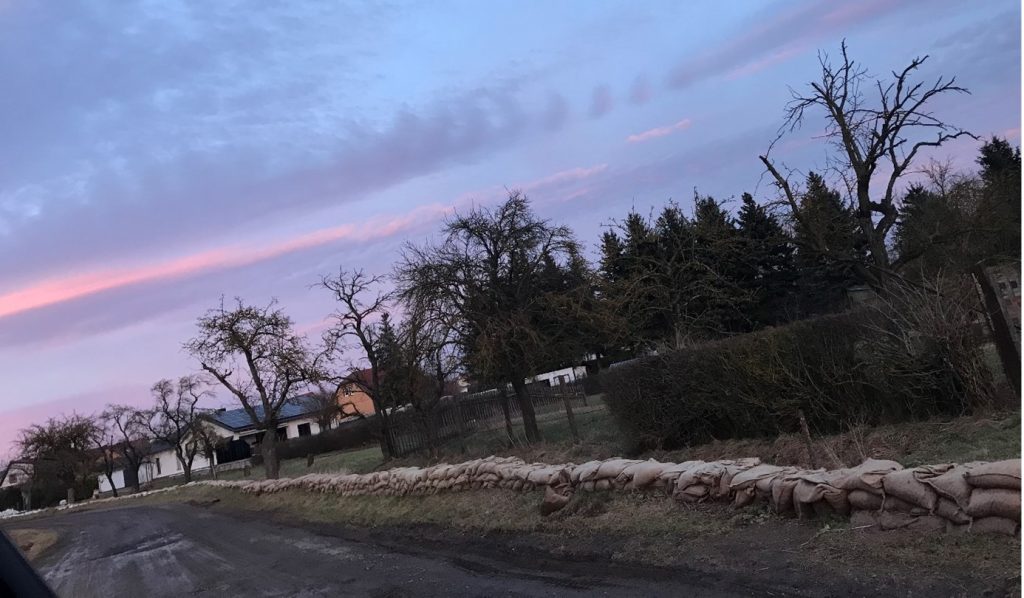By: Nicolas Bock, Cordula Dittmer, Verena Flörchinger und Peter Windsheimer
Original version (German) published: July 26, 2024
Translated version published: September 25, 2024
http://dx.doi.org/10.17169/refubium-45310

In the last weeks of 2023, Germany experienced widespread flooding, particularly in the state of Lower Saxony, but also in parts of Thuringia, Saxony, Saxony-Anhalt, and western Germany. The peak of these winter floods occurred during the Christmas holidays and New Year’s. While winter floods (e.g., along the Rhine) are not uncommon, the winter floods of 2023/24 were complicated by a combination of snowmelt, saturated soil, overflowing reservoirs, prolonged rain, and waterlogged dikes, making crisis management more difficult (Müller-Tischer 2024). The situation worsened with the arrival of frost after the weather calmed down. While the frost-hardened ground allowed heavy equipment to reach the dikes, the frozen water in the dikes posed the risk of frost breaks, and some of the equipment was partially limited in its effectiveness (Müller-Tischer 2024).
Continue reading “The Winter Flood 2023/24 – Behavior of the Population and Crisis Communication: Lessons to Learn”
